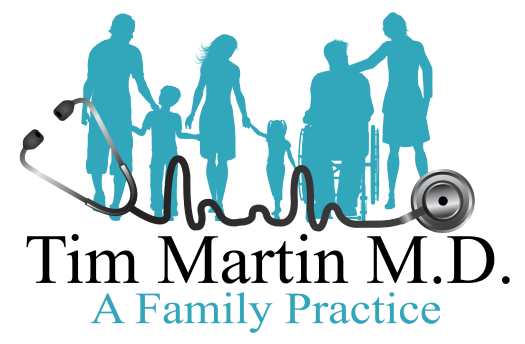Five Ways to Make a Healthy Fresh Start
Cultivating a healthy lifestyle can feel overwhelming. Eating healthier, working out, sleeping more, maybe quitting drinking or smoking – where does one begin?
Focus on these five healthy behaviors with consistency and even a beginner can reap results sooner rather than later. Follow as many of these simple steps as you can to help take your health and wellness to the next level.
Slow Down on the Sugar
-Eating vegetables and whole grains is important, but if sugar is your main food group, you won’t get the outcomes you crave. Don’t drink your sugar. Juices, sweet tea, sports drinks, sodas and alcohol are full of sugar and offer little nutritional value.
-If you are wanting something sweet after a meal, avoid traditional desserts, cookies and candy. Instead, try Greek yogurt, fresh fruit or dark chocolate (70% cocoa or higher).
-Avoid ultra-processed food (most food that comes in a box). Almost 90% of the added sugars in the average American’s diet come from ultra-processed foods. Make more of your own food and you will cut down on your sugar intake.
-Read your labels. Sugar is found in foods and sauces that aren’t even considered sweet. Did you know a serving of ketchup can have more sugar than ice cream?
-Watch out for “natural” or “healthy’ snacks like granola or protein bars. These items can be full of sugar. Swap them out for nuts, hard boiled eggs or fresh fruit.
-Beware of sugary breakfast foods. Cereal, muffins and pancakes are loaded with sugar. Start your day with less sugar and more nutrition like scrambled eggs or avocado toast.
Pile on the Protein
Staying away from sugar is much easier when you are satiated with protein. This essential element of a healthy diet is easy to incorporate into your menu.
-Get 60 -120 grams of protein daily depending on your weight and lifestyle.
-For women, eat a hand-size portion of a protein-rich food at every meal. Men should eat two hand-size portions.
-You can get protein from two sources – animal or plant. Options include chicken, turkey, beef, pork, diary and seafood. Beans, soy, tofu, legumes, lentils, grains, nuts and seeds are your vegatarian options.
-Have these quick, protein rich options on hand to easily meet your protein requirements: Tuna fish or salmon packets, hard-boiled eggs, cottage cheese, mozzarella or protein shakes (just watch the sugar).
Get Moving
From cardiac performance to joint health to weight management, consistent physical activity is irreplaceable.
-I recommend a 7-minute workout in the morning and 30 minutes of walking later in the day.
-Walking is a winner when it comes to physical activity. You can walk on a treadmill or do a walking tour of your neighborhood. Just be mindful of safety. Walk before dark, walk on even surfaces, wear the right shoes and clothing and stay hydrated.
-Being intentional about moving helps rack up steps throughout the day. The traditional rule-of-thumb of 10,000 steps has been questioned recently. Research shows you can still get the same health benefits by logging 7,500 steps.
Prioritize Your Sleep
Getting sufficient quality sleep gives you the best chance of following the other healthy habits. When you are well rested you’ll have more focus and discipline to stay on track.
-Go to bed at the same time each night and get up at the same time each morning. I know it’s tough, but follow this rule on the weekends, too.
-Create a relaxing environment for sleep: Quiet, dark and at a comfortable temperature.
-Wean yourself from the screen. Turn off the phone, TV and computer and don’t bring them into the bedroom.
-Avoid large meals, caffeine and alcohol close to bedtime.
-You’ll sleep better at night if you are physically active during the day.
Less Stress
Your ability to manage stress will impact your overall well-being and help you use your emotional energy for more productive endeavors…such as making healthy choices discussed above.
-Make healthy food choices and cut down on sugar. Poor nutrition is the leading cause of stress on your body.
-Keep moving even you don’t “feel’ like it. Regular exercise improves stress levels.
-Get 7- 8 hours of sleep every night. Improving your sleep improves your stress response.
-Learn diaphragmatic breathing to make your breathing more efficient with less effort, which is very important when anxiety begins to rise.
-Better managed stress will help you avoid unhealthy coping mechanisms like alcohol, tobacco or cupcakes!
When making changes to your daily routine and go-to behaviors, don’t take on more than you can handle. Getting discouraged or burned out will not benefit you in the long run. Making incremental, sustainable changes will.
Having trouble getting started? Text our office at 325-268-0650 to make an appointment to begin developing LifeLong health and wellness habits.
Sources:
https://www.healthline.com/nutrition/14-ways-to-eat-less-sugar
https://experiencelife.lifetime.life/article/heres-what-30-grams-of-protein-looks-like/
https://www.hsph.harvard.edu/nutritionsource/walking/
https://www.cdc.gov/sleep/about_sleep/sleep_hygiene.html
https://my.clevelandclinic.org/health/articles/9445-diaphragmatic-breathing
